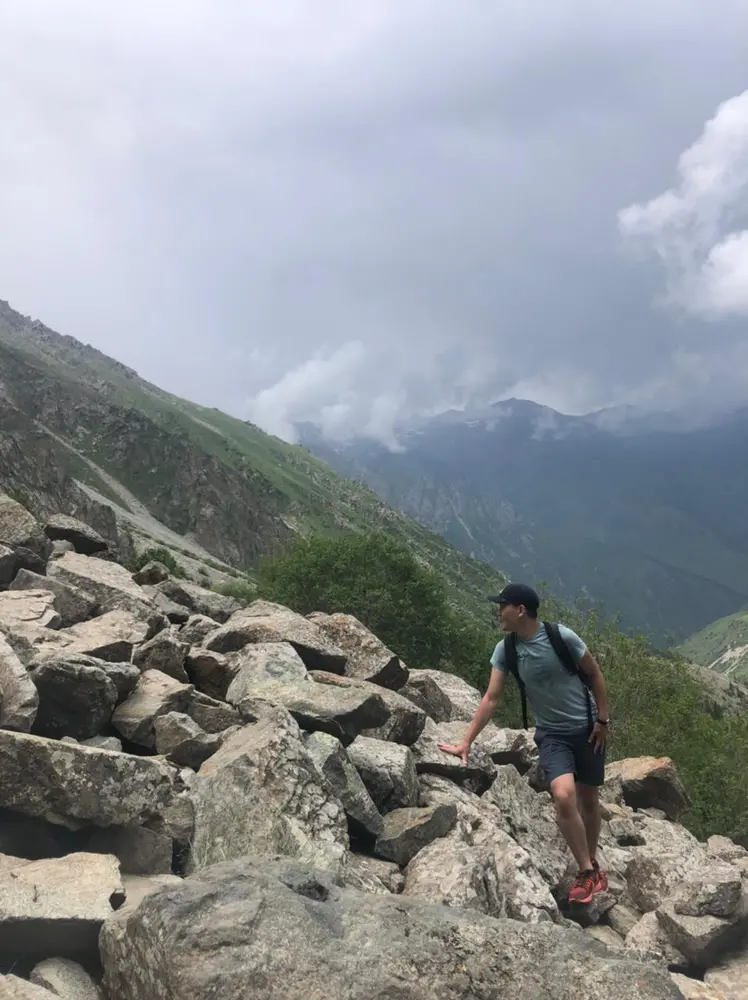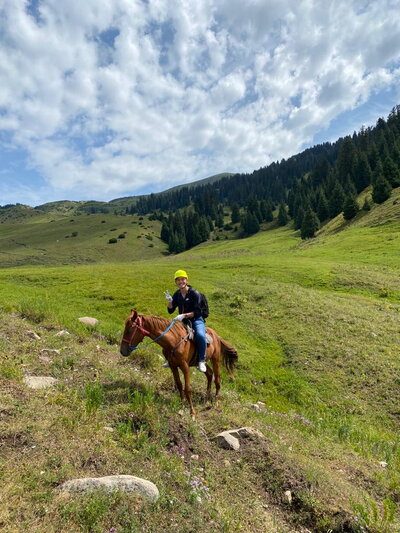
When Russia began its attack on Ukraine, colleges across the country recalled students already in those two countries and put future study abroad trips on hold.
More than a year after the invasion, the impacts of the war continue, including in the sphere of higher education. Brian Yang, a PhD student in the Department of Slavic Languages & Literatures, experienced one of those impacts first-hand in the summer of 2022 when he found his original study abroad plans were no longer possible.
Yang, whose research interests include Siberian Indigenous literatures and understanding Russian colonialism through Indigenous theory, was planning on learning Sakha—or Yakut, an Indigenous Turkic language of Siberia—in Yakutsk, a city in Siberia. Then the Russian invasion of Ukraine happened, and all U.S. funded programs to Russia were cancelled.
Instead of giving up on his plans, Yang improvised.
He decided to improve his Russian language skills instead and went to Bishkek, Kyrgyzstan through Arizona State University’s Critical Language Institute. The country was part of Russia from 1919 until the collapse of the Soviet Union in 1991.
“It was an eye-opening experience,” said Yang. “It opened a whole new world for me to practice and use the Russian language in a context outside of Russia. It was also interesting to see how the Kyrgyz people continue to use Russian but in a distinctly Kyrgyz way.”

That distinct language use is something that stuck with Yang, even a year after his experience.
“One of my biggest takeaways is [the importance] of being conscious of the history of imperial lingua francas, like Russian,” said Yang. “While Kyrgyzstan does designate Kyrgyz as an official language, Russian is still widely used. [This] allows foreigners to get to know the people and begin to appreciate the culture and history of the country, but if I could’ve done anything different, it would be to take advantage of being in the region and learn Kyrgyz alongside Russian.”
While he has fond memories of his travels to carry him through to his next trip—snapshots of Kyrgyzstan’s remote corners and the natural beauty of the mountainous Kyrgyz landscape—he said he does still carry that one regret.
“Next time, I would like to better connect with the people, history, and culture,” he said.
Dania De La Hoya Rojas
Editor's note: This story first appeared in the School of Literatures, Cultures & Linguistics Fall 2023 newsletter.